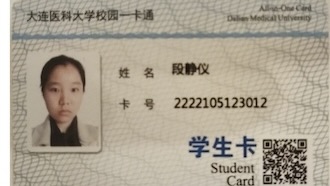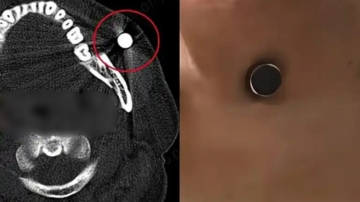【新唐人2014年09月03日讯】一款中国品牌的路由器存在的“后门程序”,最近被媒体曝光。通过这个“后门程序”,有心人士可上传、下载路由器中的档案,只要在网络上输入IP位址,便可轻易盗取电脑用户的资料。
8月30号,中国境外网络媒体“流动日报”报导,“趋势科技病毒实验室”(TrendLab) 28号发布一份报告指出,中国业者“磊科”(Netcore)旗下的路由器产品含有后门,除了可导致路由器设定被更改外,还可能被植入更强的密码,协助进行分散式阻断服务攻击,更会自动监视报告用户在网上的一举一动。
报导说,后门存在于53413埠上的开放UDP埠,“趋势科技”使用ZMAP工具进行扫瞄,发现超过200万个IP位址的UDP埠向全世界洞开,这些路由器绝大多数位于中国。
“磊科”产品在海外市场以“Netis”品牌销售,“趋势科技”研判,“Netcore”与“Netis”旗下的路由器都有后门存在。
网路技术专家立里:“目前很多欧美的网络服务商为了降低成本,用廉价的中国品牌的路由器,配置给他们的用户,比如‘华为’等,我知道荷兰也是有很多公司是采用的,而且即便是台湾的品牌或其他国家的品牌,也大量是在中共国生产的,而这些软件如果植入一些木马后门,那非常容易的,发现起来又非常困难。”
有评论指出,中共培养的庞大网路部队,除了攻击境外网站获取机密外,也通过多种途径,盗取普通百姓的私人信息,监视民众的言论。
推特网民“姑鹤”认为,中国所有的国产路由器都有后门,“姑鹤”家去年装了光纤宽带后,就发现了一个问题。
网民姑鹤:“它另外有一个帐号,这个帐号是路由器里面管理员起的帐号。但是这个帐号叫甚么名字,密码是甚么,根本就没有告诉你。所以这个帐号有对路由器进行修改的权限。这个状况已经明确的告诉你,这个路由器后门已经是公开的,我可以通过这个帐号进入你的机器,对你进行一些检查、限制等等的活动。”
网民孙林的家被当局安装了监控仪器,孙林透露,去年,他的路由器被植入后门。
网友孙林:“发现了我家里一共来了,其中还有一个女的,她动用了我的电脑,并且把我的路由器里边设定了‘不可翻墙’这个程序,导致了我一个蘋果路由器不能翻墙。它就是不择手段,不仅仅是警方亲自来动手脚,他还派特务来动手脚,我把它送到蘋果店里,他们说已经没办法恢复,这个东西植入进去的手段非常高明。”
“壹传媒”公司主席黎智英在最新一期的《壹周刊》撰文指出,7月1号,“壹传媒”伺服器被黑客以每秒钟1.43亿个查询狙击,所有私人帐目、文件、公司电邮等全被盗取,随后,他被揭发捐款给泛民议员及政团。
全球资讯自由网创办人张新宇:“香港支持民运的‘壹传媒’的电脑被盗了,也是有这个情况。中共用大型银河计算机,一秒钟算几亿次那种快速计算机,来植入它的黑客,或者打开别人的后门,进行通讯。这个你防不胜防,是因为它有人力、物力,大量的人来做这件事情。”
据了解,中国通讯装置生产商“华为”具中共解放军背景及官方资金,外界普遍担心,“华为”可能会透过技术或设定,窃取使用者资料。前年10月,美国众议院发表报告,认定中国“华为”及“中兴”可能会对美国国家安全构成威胁,将两家企业挡在美国市场门外。前年3月,澳大利亚政府也禁止华为参与竞争国家宽带网基础设施建设项目。
张新宇:“中国的路由器是从硬件里面,直接植入这种黑客,直接有一些外界不知道的程序植到里面,所以中国的路由器,包括华为,最近美国不能用,就是说,它已经植入了一些东西,为它的政治目的来服务,所以谁也不敢用它。”
“趋势科技”指出,对消费者而言,目前欠缺解决后门的资源,使用者也无法自行关闭后门,目前唯一的解决方式可能就是更换设备。
采访/陈汉 编辑/陈洁
ALARMING: Routers Made in China Monitor Your Internet Activities
The "Backdoor Programming" in a Chinese brand router
was recently exposed by the media.
Through this "Backdoor Programming," files, trojans and hacks can
be uploaded and download via the router,
This makes it easy to steal data from computers
by entering the IP address on the network.
On August 30, overseas online media newmobilelife.com
reported that TrendLab published a report on August 28.
The report indicated that routers made by a Chinese company
Netcore have backdoor programming that change routers' settings.
as well as installing coding to facilitate service attacks,
and monitoring and reporting users online activities.
The report indicated that the backdoor programming is
on the UDP.
TrendLab used ZMAP to scan and found two million
UDP IP addresses. Most of these routers are located in China.
Netcore's products are sold overseas as the Netis brand.
TrendLab analaysed that both Netcore and Netis routers
have backdoor programming.
Online technology expert Li Li: "At present, many
European and American Internet service providers give
their customers cheap Chinese brands routers to reduce cost.
For example, I know many companies in the Netherlands
use products made by "Huawei."
Even Taiwanese brand products or brands of other countries
are made in communist China.
It is very easy to install backdoor coding to these products,
but very difficult to find out.
Commentators pointed out that the Chinese Communist Party
fosters a large and powerful online army to steal secrets from
overseas,
as well as steal personal information from Chinese citizens and
monitor their speech.
Twitter user Guhe thinks all routers made in China
have backdoor programming.
He found a problem when installing fiber wide band last year.
Gu He: "It had another account name,which was created by
the administrator of the router.
Nobody tells you what is the account name or the password.
This account has permission to modify the router.
The situation is clear that backdoor programming is open.
I can get into your machine through this account and
conduct monitoring and restriction activities, etc."
Netizen Sun Lin's home had spying equipment installed in his
home by the authorities.
Last year, his router was installed with back-door programming.
Sun Lin: "They came to my home. One of them was a woman.
She worked on my computer and installed a program to
prevent "crossing the wall"in my router.
One of my Apple routers could not cross the firewall.
They used every means. They sent policemen and special agents
to work on my equipments.
I sent it to the Apple store. They told me that they could not
recover it. This means that the implant is very advanced."
Chairman of Next Media Jimmy Lai wrote in the
latest issue of Next Magazine that:
on July 1 Next Media server was attacked by hackers
at 143 million queries per second.
All private accounts, documents, company e-mails were stolen.
Later it was revealed that he donated money to
Pan-Democracy members and political groups.
World Wide Free Network founder Zhang Xinyu: "HK's
pro-democracy supporter Next Media's computers was hacked.
The CCP used "the galaxy supercomputer" to hack or open up
other's computers at hundreds of millions of times per second.
It is hard for anyone to guard, because it has huge amounts of
human and material resources to do this."
It is understood that China's communication device
manufacturers Huawei has the background and capital
from the People's Liberation Army (PLA).
It is wide scale worry that Huawei might steal user's data
through technology or configurations.
In October, 2012, U.S. House of Representatives issued a report
stating that:
China's Huawei and ZTD might pose a threat to U.S. national
security and blocked the two companies outside the U.S. market.
In March, 2012, the Australian government also banned Huawei
to compete in the national broadband network infrastructure
construction projects.
Zhang Xinyu: "The hardware of China's routers were
directly installed with hacker programming, which is unknown to
the outside world.
So Chinese routers, including Huawei's products cannot be used
in the U.S. recently.
Because something was programmed into it for political purpose.
So no one dared to use it."
TrendLab pointed out to consumers that there is a lack of
resources to solve back-door programming.
Users cannot close the back door on their own.
The only possible solution is to replace the equipment.
Interview/ChenHan Edit/ChenJie
8月30号,中国境外网络媒体“流动日报”报导,“趋势科技病毒实验室”(TrendLab) 28号发布一份报告指出,中国业者“磊科”(Netcore)旗下的路由器产品含有后门,除了可导致路由器设定被更改外,还可能被植入更强的密码,协助进行分散式阻断服务攻击,更会自动监视报告用户在网上的一举一动。
报导说,后门存在于53413埠上的开放UDP埠,“趋势科技”使用ZMAP工具进行扫瞄,发现超过200万个IP位址的UDP埠向全世界洞开,这些路由器绝大多数位于中国。
“磊科”产品在海外市场以“Netis”品牌销售,“趋势科技”研判,“Netcore”与“Netis”旗下的路由器都有后门存在。
网路技术专家立里:“目前很多欧美的网络服务商为了降低成本,用廉价的中国品牌的路由器,配置给他们的用户,比如‘华为’等,我知道荷兰也是有很多公司是采用的,而且即便是台湾的品牌或其他国家的品牌,也大量是在中共国生产的,而这些软件如果植入一些木马后门,那非常容易的,发现起来又非常困难。”
有评论指出,中共培养的庞大网路部队,除了攻击境外网站获取机密外,也通过多种途径,盗取普通百姓的私人信息,监视民众的言论。
推特网民“姑鹤”认为,中国所有的国产路由器都有后门,“姑鹤”家去年装了光纤宽带后,就发现了一个问题。
网民姑鹤:“它另外有一个帐号,这个帐号是路由器里面管理员起的帐号。但是这个帐号叫甚么名字,密码是甚么,根本就没有告诉你。所以这个帐号有对路由器进行修改的权限。这个状况已经明确的告诉你,这个路由器后门已经是公开的,我可以通过这个帐号进入你的机器,对你进行一些检查、限制等等的活动。”
网民孙林的家被当局安装了监控仪器,孙林透露,去年,他的路由器被植入后门。
网友孙林:“发现了我家里一共来了,其中还有一个女的,她动用了我的电脑,并且把我的路由器里边设定了‘不可翻墙’这个程序,导致了我一个蘋果路由器不能翻墙。它就是不择手段,不仅仅是警方亲自来动手脚,他还派特务来动手脚,我把它送到蘋果店里,他们说已经没办法恢复,这个东西植入进去的手段非常高明。”
“壹传媒”公司主席黎智英在最新一期的《壹周刊》撰文指出,7月1号,“壹传媒”伺服器被黑客以每秒钟1.43亿个查询狙击,所有私人帐目、文件、公司电邮等全被盗取,随后,他被揭发捐款给泛民议员及政团。
全球资讯自由网创办人张新宇:“香港支持民运的‘壹传媒’的电脑被盗了,也是有这个情况。中共用大型银河计算机,一秒钟算几亿次那种快速计算机,来植入它的黑客,或者打开别人的后门,进行通讯。这个你防不胜防,是因为它有人力、物力,大量的人来做这件事情。”
据了解,中国通讯装置生产商“华为”具中共解放军背景及官方资金,外界普遍担心,“华为”可能会透过技术或设定,窃取使用者资料。前年10月,美国众议院发表报告,认定中国“华为”及“中兴”可能会对美国国家安全构成威胁,将两家企业挡在美国市场门外。前年3月,澳大利亚政府也禁止华为参与竞争国家宽带网基础设施建设项目。
张新宇:“中国的路由器是从硬件里面,直接植入这种黑客,直接有一些外界不知道的程序植到里面,所以中国的路由器,包括华为,最近美国不能用,就是说,它已经植入了一些东西,为它的政治目的来服务,所以谁也不敢用它。”
“趋势科技”指出,对消费者而言,目前欠缺解决后门的资源,使用者也无法自行关闭后门,目前唯一的解决方式可能就是更换设备。
采访/陈汉 编辑/陈洁
ALARMING: Routers Made in China Monitor Your Internet Activities
The "Backdoor Programming" in a Chinese brand router
was recently exposed by the media.
Through this "Backdoor Programming," files, trojans and hacks can
be uploaded and download via the router,
This makes it easy to steal data from computers
by entering the IP address on the network.
On August 30, overseas online media newmobilelife.com
reported that TrendLab published a report on August 28.
The report indicated that routers made by a Chinese company
Netcore have backdoor programming that change routers' settings.
as well as installing coding to facilitate service attacks,
and monitoring and reporting users online activities.
The report indicated that the backdoor programming is
on the UDP.
TrendLab used ZMAP to scan and found two million
UDP IP addresses. Most of these routers are located in China.
Netcore's products are sold overseas as the Netis brand.
TrendLab analaysed that both Netcore and Netis routers
have backdoor programming.
Online technology expert Li Li: "At present, many
European and American Internet service providers give
their customers cheap Chinese brands routers to reduce cost.
For example, I know many companies in the Netherlands
use products made by "Huawei."
Even Taiwanese brand products or brands of other countries
are made in communist China.
It is very easy to install backdoor coding to these products,
but very difficult to find out.
Commentators pointed out that the Chinese Communist Party
fosters a large and powerful online army to steal secrets from
overseas,
as well as steal personal information from Chinese citizens and
monitor their speech.
Twitter user Guhe thinks all routers made in China
have backdoor programming.
He found a problem when installing fiber wide band last year.
Gu He: "It had another account name,which was created by
the administrator of the router.
Nobody tells you what is the account name or the password.
This account has permission to modify the router.
The situation is clear that backdoor programming is open.
I can get into your machine through this account and
conduct monitoring and restriction activities, etc."
Netizen Sun Lin's home had spying equipment installed in his
home by the authorities.
Last year, his router was installed with back-door programming.
Sun Lin: "They came to my home. One of them was a woman.
She worked on my computer and installed a program to
prevent "crossing the wall"in my router.
One of my Apple routers could not cross the firewall.
They used every means. They sent policemen and special agents
to work on my equipments.
I sent it to the Apple store. They told me that they could not
recover it. This means that the implant is very advanced."
Chairman of Next Media Jimmy Lai wrote in the
latest issue of Next Magazine that:
on July 1 Next Media server was attacked by hackers
at 143 million queries per second.
All private accounts, documents, company e-mails were stolen.
Later it was revealed that he donated money to
Pan-Democracy members and political groups.
World Wide Free Network founder Zhang Xinyu: "HK's
pro-democracy supporter Next Media's computers was hacked.
The CCP used "the galaxy supercomputer" to hack or open up
other's computers at hundreds of millions of times per second.
It is hard for anyone to guard, because it has huge amounts of
human and material resources to do this."
It is understood that China's communication device
manufacturers Huawei has the background and capital
from the People's Liberation Army (PLA).
It is wide scale worry that Huawei might steal user's data
through technology or configurations.
In October, 2012, U.S. House of Representatives issued a report
stating that:
China's Huawei and ZTD might pose a threat to U.S. national
security and blocked the two companies outside the U.S. market.
In March, 2012, the Australian government also banned Huawei
to compete in the national broadband network infrastructure
construction projects.
Zhang Xinyu: "The hardware of China's routers were
directly installed with hacker programming, which is unknown to
the outside world.
So Chinese routers, including Huawei's products cannot be used
in the U.S. recently.
Because something was programmed into it for political purpose.
So no one dared to use it."
TrendLab pointed out to consumers that there is a lack of
resources to solve back-door programming.
Users cannot close the back door on their own.
The only possible solution is to replace the equipment.
Interview/ChenHan Edit/ChenJie








